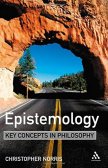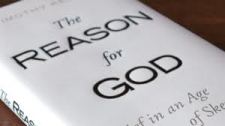Book Discussion of Christopher Norris’ “Epistemology: Key Concepts in Philosophy”
Chapter 3: ‘Fog Over Channel, Continent Isolated’: Epistemology in the ‘Two Traditions’ – Section IV, Part 2-Section V. Derrida.
Section IV, Part 2
“There is plentiful evidence in the writings of Jacques Derrida-especially his early work on Husserl and his Bachelard-influenced analyses of metaphor in the texts of philosophy-that Derridean deconstruction inherits something of the same epistemo-critical agenda. At any rate, it stands well apart from those other movements in recent French though (post-structuralism, postmodernism, and the Foucauldian ‘genealogy’ of knowledge) that adopts a highly skeptical approach to such issues.”
1. “presses hard on various antimonies in Husserl’s project-chief among them that of ‘genesis’ and ‘structure’–…with the utmost analytic rigour and with a keen sense of their taking rise from deep-laid yet conflicting necessities of thought which cannot be put down to mere confusion or failure of conceptual grasp.”
2. “instances the ‘undecidability’ of certain propositions with regard to the role of the metaphor in philosophical discourse, this term is not deployed in a loose or ad hoc way (=’vagueness’, ‘ambiguity’, etc.) but specifically with reference to Gödel’s proof that any formal system complex enough to generate the axioms of elementary arithmetic will contain at least one theorem that cannot be proved within the system itself.”
3. Pursues “with no less rigour and tenacity” “the ‘logic of supplementarity'” that he “finds everywhere at work in the texts of Rousseau and others” “for its contravening certain classical axioms, i.e., those of bivalence and excluded middle.”
There is widespread antipathy to Derrida’s work (just wiki Derrida for reasons)-Norris thinks it is mostly due to ignorance of all the background to Derrida’s thought. Derrida (and Norris, as we’ll soon see) disagrees with the ‘analytic’ tradition, that we can approach an issue without consulting earlier thought. On the one hand, I think if we have all the tools of previous thinkers, we don’t need to read everything they did to arrive at those tools in order to use them. On the other hand-if we want to speak their language, we have to use the terminology with which they are familiar-and to do that, we must read them. Hence, this book discussion…which makes me feel like I’ve merely chipped the tip of the iceberg. Only by reading folks can you find out where they got stuck, and be able to explain how to get unstuck. Only by reading folks can you save your efforts for work that is left to be done, and avoid reinventing the wheel or repeating the same old mistakes of past thinkers (“conjured away through a Wittgensteinian ‘therapeutic’ approach that most often leaves them firmly in place”)-which is what allowed cultural relativism to creep in.
Section V.
But at last there are signs that folks in the analytic camp are taking another look at issues addressed by post-Kantian epistemological thought, like “the question whether issues of knowledge come down to issues of first-hand epistemic warrant. …the question which divided Neurath and Schlick in the debates around ‘old-style’ 1930s logical positivism, namely their disagreement as to how far scientific truth-claims could be cashed out in terms of a phenomenalist (sense-datum) language which nevertheless eschewed any recourse to ‘subjectivist’ or ‘psychologistic’ modes of thought.”
This question still preoccupies recent analytical thinkers-refer back to John McDowell-but suggestions first proposed by Kant are often advanced as if nothing had happened on the continental side (“from Fichte and Schelling, via Hegel, down to Husserl”) since then-or that it “represented nothing more than a local aberration from reputable standards of truth, rationality or commonsense warrant. “The problems with McDowell’s revisionist reading of Kant-his strenuous attempt to dismount from the ‘seesaw’ of logical empiricism-are exactly those which first came to view in the quarrel between Fichte’s subjective idealism (his idea of the world-constituting Ego) and Schelling’s all-encompassing conception of nature as the ultimate source and ground of knowledge.” And folks try to appropriate Hegel’s work w/o considering “its fortunes in that other (mainland-European) tradition” (Norris says that a lot…maybe he just gets tired of saying ‘continental’…wants to mix it up a bit). They have ignored treatment of the issues by ‘continental’ thinkers from Husserl to Derrida.
Influenced by Wittgenstein, they invoke a naturalized Kant as if the problems which necessarily arise from this are “pseudo-problems that result from our chronic ‘bewitchment of language'”. But, “they are problems which necessarily arise for any project of thought that attempts to resolve the classic antinomy between truth as a matter of ‘absolute ideal objectivity’ and truth as lying within the compass of attainable human knowledge.” Hmm…maybe I still need to revise my ‘1’, ‘2’ thing from the last two sections? Lol. Oy vey.
The following is updated and corrected in my “starting point” thread.
1. Certain, mind-independent truth (ontology) histoire sanctionée (sanctioned history-hypotheses which have ‘transcended the metaphor’) ‘context of justification’–‘absolute ideal objectivity’-omniscience (which, granted, requires mind-but ‘facts’ are not dependent on that mind for their truth-kind of like how God “is” good, rather than “making” good exist).
2. Uncertain knowledge, belief (epistemology) ‘context of discovery’
–Genesis: “process of reasoning by which such truths [structure] are arrived at”-“the genesis of theories or the history of scientific thought”—Structure: “distinguishes the truths of mathematics or logic”-truth, knowledge, epistemic warrant… (can arrive at truth, but not at omniscience)histoire perimée (lapsed history) – applies to those theories which don’t pass muster
[When we come to believe what is true, then 1 and 2 come together (except for that which lapses). All we need to bring 1 and 2 together is a standard for distinguishing true from false-and minds who use the standard. The only being who doesn’t need to “use” the standard is an omniscient being, who does not “come to believe”-but eternally knows.]
This is the issue Derrida deals with when he “pursues the antinomy between ‘structure’ and ‘genesis’ which results from Husserl’s attempt to explain the possibility of objective mathematical truths as somehow resulting from a sequence of discoveries with their own historical and culture-specific conditions of emergence. Thus he shows that Husserl’s entire project is riven by these two contradictory imperatives, i.e., the requirement that geometry should on the one hand be conceived as possessing a character of timeless, eternal, a priori truth, while on the other it involves the ‘reactivation’ of certain cardinal insights that have made up the history of geometrical thought from Euclid to the present day. In particular Derrida brings out the problems that result from any striving to secure the apriority claim when confronted with developments-such as non-Euclidean geometry-which would seem to place large obstacles in its way.” What’s cool about Derrida is he approached these issues with respect to Husserl’s “exemplary rigour” and “the points at which phenomenology runs up against constitutive problems or aporias in its own undertaking.”
How to reconcile objectivist verification-transcendent mathematical truth with epistemic accounts which bring truth within reason’s grasp, as see in chapter 2, is a main topic of debate for analytic philosophers-and Derrida “takes due stock of the well-known exchange between Husserl and Frege on the status of truths in the formal sciences and the strict necessity-as Frege saw it-to redeem such ‘absolute ideal objectivities’ from any taint of empirical grounding or ‘psychologistic’ provenance.” His way of raising these issues gets him beyond Gilbert Ryle (recycles ‘psychologistic’ charge) and Michael Dummett (pro-Fregean)-and others from that ‘other’ (non-mainland European) tradition (like the ‘nothing works’ folks). “His reflections on the problematic status of a prior truth-claims are pursued in a way that contrasts sharply with the approach adopted by philosophers who either reject such claim out of hand or arrive-like Putnam-at the pyrrhic conclusion that the sole candidate for a priori status is a trivially self-evident proposition such as ‘not every statement is both true and false’.”
McDowell (refer to previous mention of him) suggests grasping Kant’s doing away with dichotomies like mind/world, subject/object, concept/intuition, logical form / empirical content, and “see that the mind’s ‘spontaneity’, i.e., its active role in our various processes of knowledge-acquisition, is in no way separable from the mind’s ‘receptivity’, that is to say, its (supposedly) passive registration of incoming sensory stimuli”-while ditching (or embracing? lol) the parts about scheme/content dualism (that knowledge is “a matter of bringing sensuous intuitions under adequate concepts”)-but in doing so, he merely “substitutes one dualism for another, that is, Kant’s talk of ‘spontaneity’ and ‘receptivity’ for his talk of ‘concepts of understanding’ vis-à-vis ‘sensuous intuitions’.” This part confused me, because it wasn’t clear if McDowell was in favor of the latter dichotomy…though, I’m assuming by how it ended that he was. In short: Derrida does it better.
The rest of the section/chapter basically ends the way section 1 begins-refer to that.









